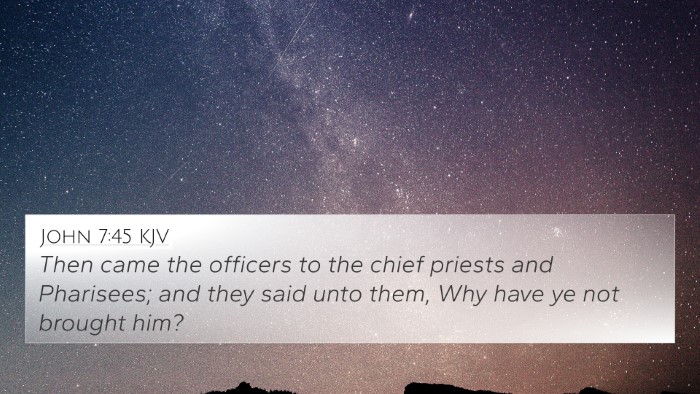Understanding Acts 26:12
Acts 26:12 states:
"While thus occupied, as I journeyed to Damascus with authority and commission from the chief priests."
Verse Meaning Summary
This verse captures a pivotal moment in the Apostle Paul's life when he recounts his journey to Damascus. It reflects a transformation of purpose stemming from his previous zealous persecution of Christians.
Insights from Public Domain Commentaries
Matthew Henry's Commentary
Matthew Henry emphasizes the dramatic shift in Paul’s life. He notes that Paul was an earnest persecutor before encountering Christ. This journey symbolizes persecution but also marks the beginning of his mission to spread the Gospel.
Albert Barnes' Notes
Barnes points out that Paul’s mention of authority and commission indicates the legitimate power he wielded from the Jewish leaders. This illustrates the intensity of his mission and the seriousness of his prior convictions, highlighting the transformation after his encounter with Jesus.
Adam Clarke's Commentary
Clarke discusses the significance of Damascus as a pivotal city. He notes the implications of Paul’s journey, drawing connections to the wider context of outreach to Gentiles. Clarke elucidates how this mission reflects God's broader plan for redemption.
Thematic Connection
This verse and its surrounding context present several key themes including:
- Transformation: The shift from persecutor to Apostle reflects the transformative power of Christ.
- Authority: The notion of religious authority and how it can be redirected toward spreading the Gospel.
- Divine Intervention: The context points to God's intervention in the lives of individuals to fulfill His purposes.
Cross-references for Acts 26:12
This verse can be cross-referenced with several others that relate to themes of conversion, authority, and the spread of the Gospel:
- Acts 9:1-6: The account of Paul's conversion on the road to Damascus.
- Galatians 1:13-14: Paul’s prior zeal in Judaism.
- 1 Timothy 1:12-13: Paul’s recognition of his transformation from a persecutor.
- Philippians 3:5-6: Paul’s credentials as a Pharisee, illustrating his former life.
- Romans 8:28: The idea that God works all things for good, as seen in Paul's life.
- Matthew 28:19-20: The Great Commission, linking Paul’s mission to Christ's command.
- Acts 22:3-21: Paul recounting his own conversion story.
Comparative Bible Verse Analysis
In examining Acts 26:12, one sees parallels with other instances of divine encounters throughout Scripture. Each revelation leads to a transformation of mission:
- Moses at the Burning Bush (Exodus 3): God's call redirected a fugitive into a leader.
- Isaiah’s Vision (Isaiah 6): Encounter with God leading to a prophetic mission.
- Peter's Vision (Acts 10): An apostolic mission influenced by divine revelation.
Tools for Bible Cross-Referencing
To further explore cross-references, consider utilizing the following:
- Bible Concordance: An alphabetical index of words and phrases found in the Bible.
- Bible Cross-reference Guide: Resources designed to highlight corresponding scriptures.
- Bible Reference Resources: Books and tools that aid in finding cross-referenced themes.
User Intent Keywords
For those searching for related verses or understanding connections:
- What verses are related to Acts 26:12?
- Find cross-references for Paul's conversion story.
- How do Acts 9 and Acts 26 connect?
- Similarities between Paul's journey and Moses' calling.
Conclusion
Acts 26:12 serves as a profound narrative of transition from opposition to evangelism. By examining the commentaries and cross-referencing with related Biblical texts, one can delve deeply into the transformative power of faith and divine calling. Each reference opens new insights into Paul’s life and the overarching theme of redemption throughout the Scriptures.












